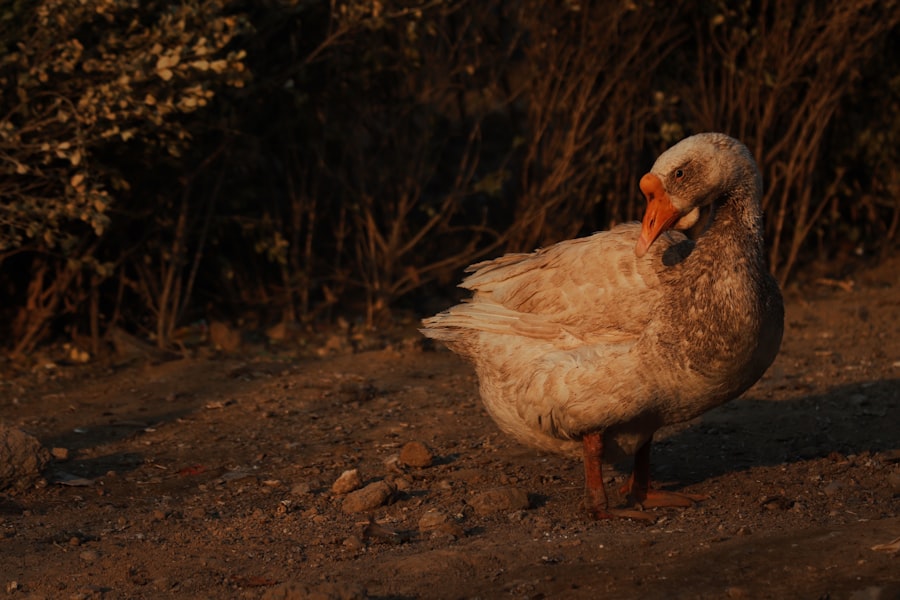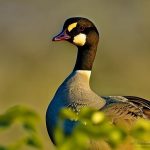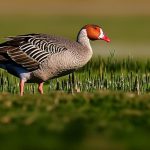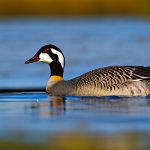Geese farming has a long history in Western Australia, dating back to the early days of European settlement. Geese were originally brought to the region for their meat and feathers, and were commonly found on farms and homesteads. However, over time, the popularity of geese farming declined as other livestock became more profitable.
In recent years, there has been a resurgence of interest in keeping geese in Western Australia. This can be attributed to several factors, including the increasing demand for organic and locally sourced food, as well as the desire for sustainable and environmentally friendly farming practices. Geese are known for their ability to control pests, produce high-quality fertilizer, and provide meat and eggs. Additionally, many people find the presence of geese on their property to be aesthetically pleasing.
Key Takeaways
- Keeping geese in Western Australia can be a rewarding and profitable venture.
- Geese can provide benefits such as pest control, fertilizer, and meat and egg production.
- Choosing the right breed of geese depends on your needs, climate, and available space.
- Geese require adequate housing and shelter to protect them from predators and harsh weather conditions.
- Feeding and watering geese in Western Australia requires a balanced diet and access to clean water.
Benefits of keeping geese on your property
One of the main benefits of keeping geese on your property is their ability to control pests. Geese are natural grazers and will happily eat grass, weeds, and insects. They can help keep your lawn or pasture free from unwanted pests such as slugs, snails, and grasshoppers. This can reduce the need for chemical pesticides and promote a healthier ecosystem.
Another benefit of keeping geese is their ability to produce high-quality fertilizer. Geese droppings are rich in nitrogen, phosphorus, and potassium, which are essential nutrients for plant growth. By allowing your geese to roam freely on your property, you can naturally fertilize your soil and improve its fertility.
In addition to pest control and fertilizer production, geese also provide a source of meat and eggs. Geese meat is known for its rich flavor and is often considered a delicacy. Geese eggs are larger than chicken eggs and have a higher yolk-to-white ratio, making them ideal for baking and cooking.
Lastly, many people find the presence of geese on their property to be aesthetically pleasing. Geese are graceful and elegant birds, and their honking can add a charming and rustic ambiance to your farm or homestead.
Choosing the right breed of geese for your needs
When it comes to choosing the right breed of geese for your needs, there are several factors to consider. In Western Australia, some of the most popular breeds include Embden, Toulouse, and Chinese geese.
Embden geese are known for their large size and white feathers. They are excellent for meat production and can also be used for egg production. Toulouse geese are slightly smaller than Embden geese and have gray feathers. They are also good for meat production and can lay a decent number of eggs. Chinese geese are smaller in size and have a distinctive knob on their beak. They are primarily kept for ornamental purposes but can also be used for meat and egg production.
When choosing a breed, it is important to consider factors such as climate adaptability, temperament, and desired purpose (meat, eggs, or ornamental). It is also advisable to choose breeds that are known for being hardy and disease-resistant.
Housing and shelter requirements for geese
Geese require adequate housing and shelter to protect them from the elements and predators. There are several types of housing and shelter options to choose from, including sheds, barns, and portable shelters.
The size and space requirements for geese housing depend on the number of geese you plan to keep. As a general rule of thumb, each adult goose should have at least 10 square feet of indoor space and 20 square feet of outdoor space. The indoor space should be well-ventilated and provide protection from extreme temperatures.
When it comes to materials and construction, it is important to choose durable and predator-proof materials. Geese can be vulnerable to predators such as foxes, raccoons, and dogs. The housing should have secure fencing and doors to prevent predators from entering. Additionally, the flooring should be easy to clean and provide good drainage.
Feeding and watering your geese in Western Australia
Geese have specific nutritional requirements that need to be met in order for them to thrive. A balanced diet for geese should consist of a combination of grains, greens, and protein sources.
Grains such as corn, wheat, and barley can make up the majority of a goose’s diet. These grains provide energy and help promote healthy growth. Greens such as grass, lettuce, and spinach should also be included in their diet to provide essential vitamins and minerals.
Protein sources such as insects, worms, and fish can be added to their diet to promote muscle development and egg production. It is important to ensure that the protein sources are fresh and free from pesticides or chemicals.
In addition to a balanced diet, geese also require access to clean and fresh water at all times. Geese have a high water intake and use it for digestion, cooling down, and cleaning their feathers. It is important to provide them with a shallow water source that they can easily access.
Health and veterinary care for geese

Like any other livestock, geese are susceptible to certain health issues. Some common health issues in geese include respiratory infections, parasites, and foot problems.
To prevent health issues in geese, it is important to provide them with a clean and sanitary environment. Regular cleaning of their housing and regular removal of droppings can help prevent the spread of diseases.
It is also important to provide them with a balanced diet and access to fresh water. A healthy diet can help boost their immune system and prevent nutritional deficiencies.
Finding a veterinarian who specializes in avian care is important for the health and well-being of your geese. They can provide vaccinations, perform routine check-ups, and offer advice on preventive measures.
Breeding and hatching goslings
Breeding geese can be a rewarding experience, but it requires careful planning and preparation. Geese have a specific breeding season, which typically occurs in the spring. During this time, the geese will mate and the female will lay eggs.
The incubation and hatching process typically takes around 28-35 days. The female goose will lay a clutch of eggs and then begin incubating them. It is important to provide her with a quiet and secure nesting area during this time.
Once the goslings hatch, they will require special care and attention. They should be kept in a warm and dry environment and provided with a balanced diet. It is important to monitor their health and provide any necessary veterinary care.
Managing geese in a mixed farm environment
Geese can be managed in a mixed farm environment alongside other livestock such as chickens, ducks, and goats. However, it is important to consider their compatibility with other animals and their impact on the farm ecosystem.
Geese are generally compatible with other farm animals as long as they have enough space and resources. They can help control pests and provide additional fertilizer for crops or pastures.
When managing geese in a crop or vegetable farm, it is important to consider their grazing habits. Geese are natural grazers and can eat crops or damage vegetable gardens if not properly managed. Fencing or rotational grazing can help prevent damage to crops.
Geese can also play a role in pasture management by grazing on weeds and improving soil fertility. However, it is important to monitor their grazing habits to prevent overgrazing.
The legal requirements for keeping geese in Western Australia
Before starting a geese farming operation in Western Australia, it is important to be aware of the legal requirements and regulations. This includes obtaining any necessary permits or licenses and complying with animal welfare laws.
In Western Australia, there are no specific permits or licenses required for keeping geese on a small scale. However, if you plan to breed and sell geese, you may need to obtain a livestock identification number (LID) and comply with regulations regarding animal movement and traceability.
It is also important to ensure that you are providing proper care and welfare for your geese. This includes providing adequate housing, nutrition, and veterinary care.
Tips for successful geese farming in Western Australia
Starting a geese farming operation in Western Australia can be a rewarding endeavor, but it requires patience, persistence, and knowledge. Here are some tips for success:
1. Start small and gradually expand: It is advisable to start with a small number of geese and gradually expand as you gain experience and confidence.
2. Learn from experienced geese farmers: Seek advice from experienced geese farmers in your area. They can provide valuable insights and tips based on their own experiences.
3. Join a geese farming community: Joining a geese farming community or association can provide you with access to resources, support, and networking opportunities.
4. Be patient and persistent: Geese farming can be challenging at times, but with patience and persistence, you can overcome obstacles and achieve success.
Keeping geese in Western Australia offers numerous benefits, including pest control, fertilizer production, meat and egg production, and aesthetic appeal. By choosing the right breed of geese, providing adequate housing and shelter, feeding and watering them properly, ensuring their health and veterinary care, breeding and hatching goslings, managing them in a mixed farm environment, complying with legal requirements, and following tips for success, you can have a successful geese farming operation in Western Australia. So why not give it a try?
If you’re interested in keeping geese in Western Australia, you may also find this article on poultrywizard.com helpful. It discusses the importance of providing a coop for turkeys and offers insights into their specific needs. Understanding the requirements for housing turkeys can provide valuable insights into creating a suitable environment for geese as well. To learn more, check out the article here.
FAQs
What are the regulations for keeping geese in Western Australia?
In Western Australia, geese are classified as domestic poultry and are subject to the same regulations as chickens. This means that they must be kept in a secure enclosure and cannot be allowed to roam freely.
What kind of enclosure is suitable for geese?
Geese require a secure enclosure that is protected from predators such as foxes and dogs. The enclosure should be at least 1.5 meters high and have a solid floor to prevent the geese from digging out. It should also provide shelter from the sun, wind, and rain.
What do geese eat?
Geese are herbivores and primarily eat grass, weeds, and other vegetation. They also enjoy grains and can be fed a commercial poultry feed that is specifically formulated for geese.
How much space do geese need?
Geese require a minimum of 10 square meters of space per bird. However, more space is always better, especially if they are not allowed to free-range.
Do geese require any special care?
Geese require regular access to clean water for drinking and bathing. They also need to have their wings clipped to prevent them from flying away. Additionally, they should be provided with a shallow pool or pond for swimming.
Can geese be kept with other poultry?
Geese can be kept with other poultry, but it is important to ensure that they have enough space and that the enclosure is secure. Geese can be aggressive towards other birds, especially during breeding season.
What are the benefits of keeping geese?
Geese are excellent foragers and can help keep grass and weeds under control. They also produce large eggs that are great for baking and have a rich, flavorful meat that is similar to duck. Additionally, geese can make great pets and are known for their intelligence and loyalty.
Meet Walter, the feathered-friend fanatic of Florida! Nestled in the sunshine state, Walter struts through life with his feathered companions, clucking his way to happiness. With a coop that’s fancier than a five-star hotel, he’s the Don Juan of the chicken world. When he’s not teaching his hens to do the cha-cha, you’ll find him in a heated debate with his prized rooster, Sir Clucks-a-Lot. Walter’s poultry passion is no yolk; he’s the sunny-side-up guy you never knew you needed in your flock of friends!







